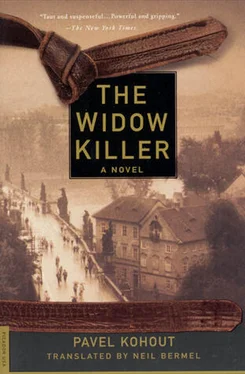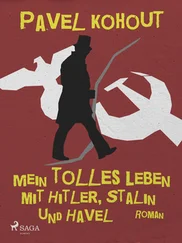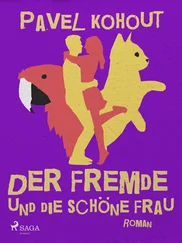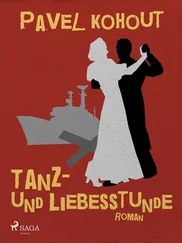The third suspect was therefore of exceptional interest.
Jakub Malatínský, born 6 April 1905 in Mikulov in south Moravia, was the son of a vintner who worked his way up to cellar master in the fabled Valtice vintners’ school. His career ended overnight in 1926 when he stabbed his young wife, whom he suspected — probably correctly — of infidelity. What was more, he cut off both the dead woman’s breasts, which in court he explained as insane jealousy that another man had been allowed to touch them. The prosecutor asked for life, but after an evidently outstanding defense counsel’s fiery closing argument, the court was persuaded that the defendant had acted in a moment of passion and capped the sentence at fifteen years. In spring 1937 he was released for good behavior and sincere repentance and was hired as a custodian for the court building. He was the only one resident in Brno on the day of the murder, albeit as an appendectomy patient. At the time of the crime he was already ambulatory and sharing a room with a demented patient, but even so it was highly improbable that he could have obtained clothing, latched onto the young widow— where there was no evidence that he even knew her — brutally murdered her, and returned to his hospital bed by midnight, when the duty nurse spoke with him. The year before last, he had decided to return to his home county, where his good commendations helped him regain the post of cellar master.
Bruno Thaler rounded out the foursome of potential perpetrators. Born 12 August 1913 in Jihlava of German descent, this trained butcher was sent for psychological treatment when, after repeated vivisections of animals (for instance, disembowling pigs before slaughtering them), he threatened a female coworker with the same fate if she reported him. His statement that on the day of the murder he had been in Austria as an agent of Henlein’s storm troopers was supported by the regional leader’s stamp. After the country’s annexation, no one dared reopen the investigation.
“… And because of his German background, Thaler was removed from the Czech office’s files,” Morava said, wrapping up his briefing.
“We’ll look into it,” Buback commented laconically.
Then he leaned stiffly into his corner and sat out the remaining four long hours, eyes open, until they rolled into Brno amid the military and civilian trucks. Morava fought sleep strenuously; he did not want to display the slightest weakness, especially in front of this man. He almost regretted that Buback was not trying to squeeze information out of him….
Here,” she said to the luckless Moravian, “choose yourself something warm.”
Barbora Pospíchalová was standing in front of the open wardrobe and had to fight the temptation to close it under some pretext or other. Once again she felt she was treacherously writing Jaroslav off, although as she poured out her whole story, Jind  ich included, to this poor man on the way home, her heart told her everything was as it should be. Now her guest stood motionless beside her with his suitcase in hand; he looked uncomfortable, as if he were reading her thoughts. Gallantly she encouraged him, to have it over with quickly.
ich included, to this poor man on the way home, her heart told her everything was as it should be. Now her guest stood motionless beside her with his suitcase in hand; he looked uncomfortable, as if he were reading her thoughts. Gallantly she encouraged him, to have it over with quickly.
“Don’t be shy; I’d give them away in any event.”
The refugee set his case down, opened it, and scrabbled through it. A swath of green material folded several times fell out onto the carpet. As it unfolded, Barbora recognized it as a well-preserved hunting coat.
“But look, you’ve got…,” she blurted, confused, then lost her voice as she saw the straps in the man’s hand.
Instantly he struck her between the eyes with the base of his free hand. In the midday light, the familiar room burst into a colored kaleidoscope. She fell into the wardrobe, slowly sinking into the dense mass of hanging clothes, and the reek of moth powder gave way to Jaroslav’s scent.
Erwin Buback was not particularly worried about the Czech detective. The impression the school notebook had made at their first meeting had deepened over time. The kid was capable and hardworking; it was no surprise that Beran trusted him so. At the same time he was a perfect example of a “lotus flower,” as Hilde called those too-open and guileless souls. (She’d soon proved herself worthy of the title in his eyes.) In the Prague criminal police’s head office, where he had least expected it, he had found two of these characters: in addition to Beran’s adjutant, there was his secretary, a near likeness of young Hilde.
As he sat motionless in the car (his standard wartime tactic around citizens of occupied nations, since he felt that a Prussian military bearing induced respect), the faces of the two women merged into a single image in his mind; he could not determine which of them his inner eye was seeing. It was the first time this had happened since Antwerp, and it confused him. Was the Czech girl strengthening his memory of his beloved wife, or had the indelible image of Hilde awakened a connection he’d first sensed that evening in the bar of German House? This striking similarity of features and characters had to be a signal from fate — didn’t it?
It was days before he learned anything about the girl, and therefore, in an impossibly short time, he imposed on her many of the feelings he had lost with the passing of his first and only true love. He caught sight of her only in the moments when she walked past behind the eternally open door of Beran’s anteroom or when he passed through it himself on the way to see her superior.
A further sign from fate was that he had first seen Hilde in exactly this way. Though she was the daughter of the owner of Dresden’s Schlosskonditerei, her responsibilities as a newly trained confectioner kept her behind the scenes of the business, while her parents and brother moved about the stage of the city’s favorite cafe. Buback took a parade of girlfriends there until one day this shy creature appeared behind the café’s new technological wonder — a refrigerated counter from Electrolux — to check which delicacies needed replenishment.
This brief eventless event turned his life upside down. He began to spend all his free time in the cafe, but even so was rarely rewarded with her long-awaited appearance. He prepared his best admiring gaze for her, which, he smugly knew, was infallible — but it never hit its mark: not once did the girl raise her eyes from the sweets.
Later she confessed to a small deception. From the very beginning she had seen him through the grating in the kitchen, so she knew of his numerous companions. He had captivated her from the first with his masculine good looks and suave manner, and for precisely this reason she resolved not even to look his way lest she fall victim to his charm. She was afraid of ending up like the rest of his transitory acquaintances. Hilde had been born and raised for one great relationship; she intended to offer her love only once and forever. If she were mistaken, she told him soon after the wedding, she would crack. How? he said, not understanding. The way bells crack, she answered; they keep their form, but lose their sound and with it their purpose.
He had no choice but to bring the mountain to Muhammad and, for the first time in his life, take sole responsibility for meeting a girl, instead of letting her do the work. The only polite way of doing so at the time entailed more serious obligations.
“Dear Miss Schäfer,” he wrote her,
I beg your forgiveness for troubling you; as an excuse I can offer that I know you by sight, as a regular customer of your establishment. If I may be permitted to make a request of you and your parents, I would like to invite you this Sunday for tea at five o’clock at the Waldruhe Restaurant. Should this request meet with your favor, I will call for you at the private entrance of the Schlosskonditerei at half past four. With deepest respect, I remain
Читать дальше

 ich included, to this poor man on the way home, her heart told her everything was as it should be. Now her guest stood motionless beside her with his suitcase in hand; he looked uncomfortable, as if he were reading her thoughts. Gallantly she encouraged him, to have it over with quickly.
ich included, to this poor man on the way home, her heart told her everything was as it should be. Now her guest stood motionless beside her with his suitcase in hand; he looked uncomfortable, as if he were reading her thoughts. Gallantly she encouraged him, to have it over with quickly.










